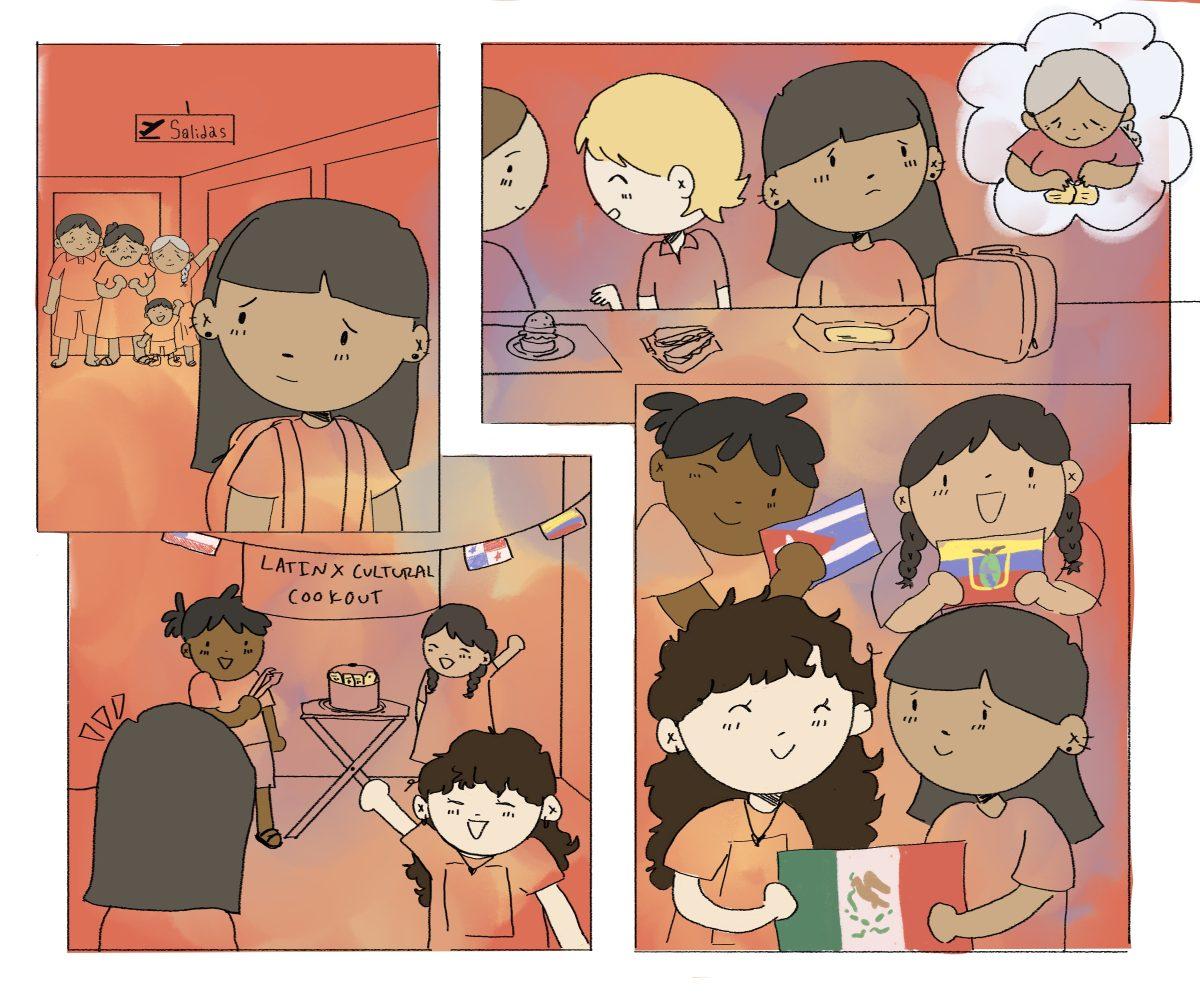Latina.
To be honest, I had never used the word until two years ago, when I decided to move to the United States to continue my college studies.
Until that moment there was no need, since I lived in a place where the majority of the population shared the same characteristic, being Latino. However, that changed the day I left Ecuador, my home.
Don’t get me wrong, using this word to describe myself is not a bad thing. Rather, every time I use it, I feel pride running through my veins because I am referencing my country, my culture and an important part of my identity.
This pride, however, wouldn’t have existed if I weren’t in a foreign country.
Living in another country has made me realize how proud I am of my ethnicity, culture and Ecuadorian heritage. I would even dare to say that living in the United States has allowed me to connect with my culture in a way that I would not have imagined otherwise.
Since moving, I’ve been able to share aspects and traditions of my culture that are important to me.
For example, in my first year of college, I invited some friends to eat a traditional Ecuadorian dish: patacones con queso. Cooking and sharing this typical dish from my country with my new community made me feel proud of where I come from, of being Ecuadorian, of being Latina.
I won’t deny that over the course of these two years it has been difficult to preserve aspects of my culture, especially because the language and traditions are different and I’ve had to adapt to this new environment.
Even with respect to language, there have been moments when I’ve felt like I’m losing this specific part of my Hispanic heritage. Writing this column in Spanish, for example, has made me realize that there are certain words I don’t remember, which is why it’s no longer easy for me to write in my native language.
However, while it’s not been easy to preserve my culture in a place where the same traditions aren’t celebrated, the same food is not eaten and the same language is not spoken, I’ve found a way to preserve and celebrate my heritage every day.
First, maintaining contact with my family and friends who live in Ecuador has been one of the things that has helped me maintain a cultural connection. Talking to my mother, my grandparents and my aunt in my native language makes me feel that I’ve not lost that connection with my community. Despite being far from my family geographically, they are the ones who help me keep my culture alive.
I’m not alone in this experience, either.
“My parents have been in charge of preserving the culture …,” Cindy Argueta said, a fourth-year studying nutrition. “I think the most important part is the language. In my house we always speak Spanish, … English is never spoken, and I think it’s a very important part for me because my grandmothers, my aunts and all of them, let’s say, speak Spanish and this way it’s easier to communicate with them.”
Another crucial aspect that helps me preserve my cultural heritage is sharing it with others. The best way to keep my culture alive is to pass on aspects that make it unique with members of other communities.
Jennifer De Leon, a third-year studying history and the current president of Mi Familia at NC State, said culture is maintained by being able to share it with others.
“I love to share,” De Leon said. “Believe it or not, part of Hispanic pride is recognizing that there are other Hispanics who have the same customs to share. We are always like a family and I try, [with] those who let me, to share as family.”
The cultural heritage of each country is unique, therefore sharing it is important.
Latinx/Hispanic Heritage Month has a very important take on this, as it not only allows us to celebrate the achievements, stories, traditions and cultural diversity of our countries, but it also allows us to remember.
Remember our ancestors, remember where we come from and remember that our culture lives in us every day –– in the music we listen to, the food we prepare, the way we communicate and beyond.
“I don’t necessarily think that this month should only be between the month of September and the month of October,” De Leon said. “Preserving culture for one is every day.”
That is why I’m always, not only during this month, proud to say that I am Latina and highlight the culture I come from.
Every day, through the small actions such as speaking Spanish with my friends or listening to salsa, merengue and reggaeton, I realize that somehow, despite having left Ecuador, my culture is still and will continue to be within me.














